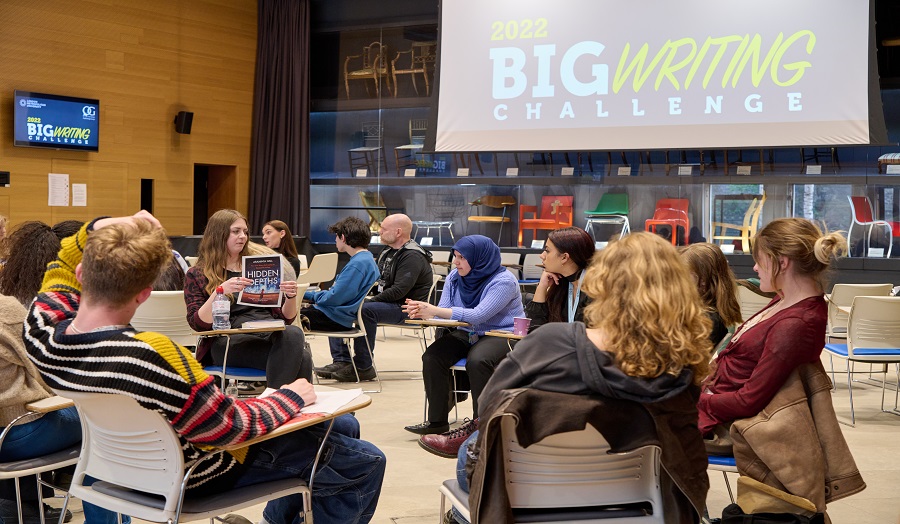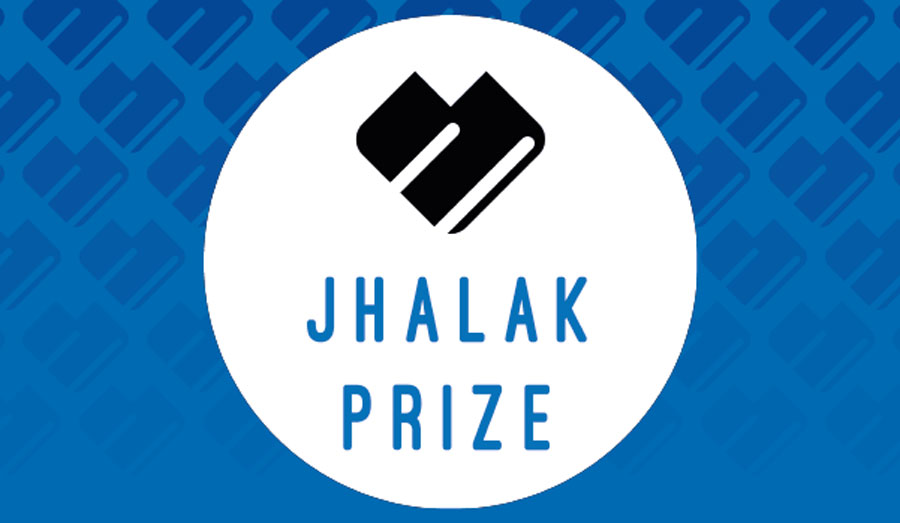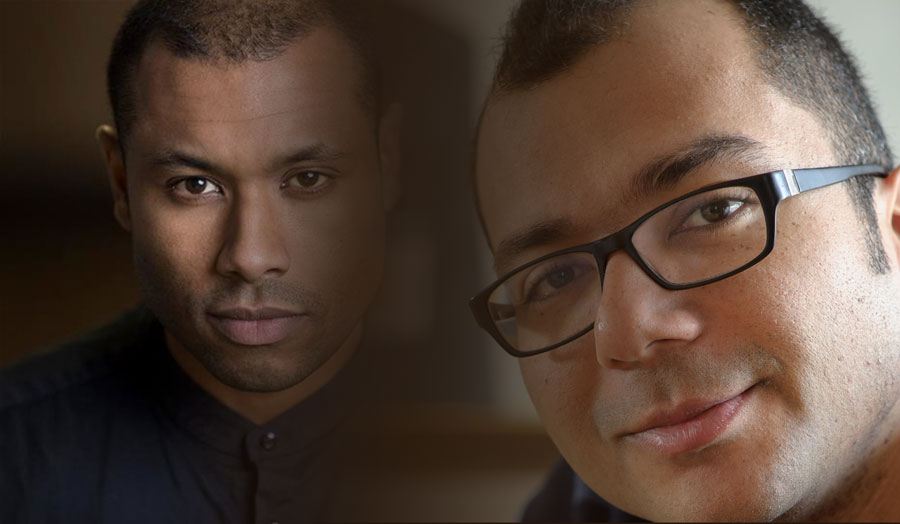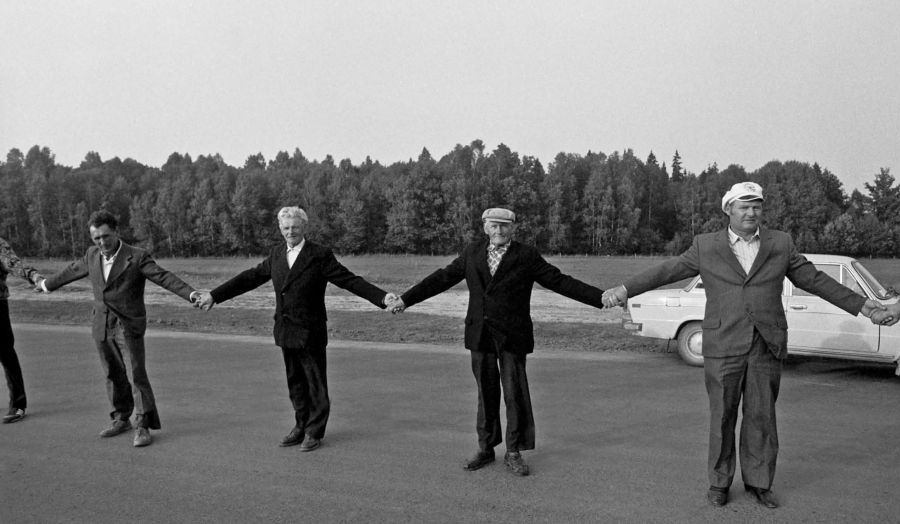Apply for this course
Please select when you would like to start:
If you're a UK applicant wanting to study full-time starting in September, you must apply via UCAS unless otherwise specified. If you're an international applicant wanting to study full-time, you can choose to apply via UCAS or directly to the University.
If you're applying for part-time study, you should apply directly to the University. If you require a Student visa, please be aware that you will not be able to study as a part-time student at undergraduate level.
Why study this course?
Study on a degree that combines theoretical study with the development of your own creative voice as a writer. Taught by experienced poets and novelists, our Creative Writing and English Literature BA will increase your understanding of literature through the study of the historical and contemporary genres in national and international contexts. Publishing, the arts, education, communications and business sectors are just a few of the areas open to you after graduation.
For an insight into the projects you'll participate in, take a break and browse through Anthology IV, a collection of short-form pieces written, compiled and published by students on the course.
Benefit from London's literary and cultural history
Benefit from organised visits to theatres, galleries, libraries, archives and events, giving context and support to your studies
Make use of a wide range of incredible resources
You'll benefit from our exceptional facilities and have the resources of the British Library at your fingertips
Excellent career prospects
After you graduate you will be an excellent candidate for a career in publishing, the creative and cultural industries, the arts, education and the communications sector
Course modules
The modules listed below are for the academic year 2024/25 and represent the course modules at this time. Modules and module details (including, but not limited to, location and time) are subject to change over time.
Year* 1 modules
Year 2 modules
Year 3 modules
Poetic Form and Genre
This module currently runs:all year (September start) - Thursday morning
(core, 30 credits)
This module will provide students with a wide-ranging introduction to reading poetry and to the great variety of poetic forms and genres, from sonnets to free verse and performance poetry. It will introduce students to poetic literary history through major poets such as Chaucer, Shakespeare, Wordsworth and Eliot, and equally explore contemporary poetry and poetics. Throughout the module, students will be provided with skills and opportunities to read published poetry, write their own poetry, and discuss poetry in a supportive environment facilitated by their tutor. The module is taught primarily by three-hour weekly classes typically comprising a lecture and a writing workshop. The module is assessed by written coursework and an oral presentation.
The module aims to introduce a range of critical and technical skills required to read, write and discuss poetry; to examine poetic forms and genres in the context of both the historical development of (mostly British) poetry and also the diversity of contemporary poetic practice; and to explore different ideas about the function of poetry.
Read full detailsRomantics to Victorians
This module currently runs:all year (September start) - Thursday afternoon
(core, 30 credits)
Romantics to Victorians is the first of a spine of historical modules running across all three levels of the English Literature programmes. It introduces students to the major transformations of English literature and culture during the mid-18th to the mid-19th century period. Through the study of literary and other primary texts of the period, the module provides a contextual introduction to the study of literature in the late modern period and related critical debates. The module is taught in weekly sessions and is assessed by a series of written coursework pieces. The module will also provide an extended induction to academic study skills.
The module aims to familiarise students with a range of literary material from the period 1750 to 1880; to relate the thematic concerns of literary works to an historical account of social, political and cultural developments within the given period; to develop students’ ability to analyse and write critically about literary texts; and to develop students’ study skills and academic competences as independent learners.
Read full detailsTheatre and Performance: History and Craft
This module currently runs:all year (September start) - Friday morning
(core, 30 credits)
Theatre and Performance: History and Craft provides an opportunity to study the development of the genre via a number of canonical texts and transformative moments in the history of the form. Students study the formal characteristics of representative playtexts and the political, social and cultural concerns of the societies in which they were first performed. This is combined with a study of developing theatrical practice and performance, where students examine how writing and performance intersect, inform, and inspire each other. According to pathway, students will specialise, either in the critical and theoretical analysis of dramatic genres, or in creative writing and the production of playscripts. The module is taught in weekly three-hour sessions comprising a lecture and English Literature seminar or Creative Writing workshop, and is assessed by essay, presentation, script and/or reflective writing.
This module aims to examine a range of playtexts and theatrical forms within critical and historical contexts, to familiarise students with the vocabulary and awareness necessary to discuss texts and the creative process, and to encourage students to explore differences between texts as literature and texts for performance. Additionally, Creative Writing students will develop their scriptwriting skills.
Read full detailsWriter's World
This module currently runs:all year (September start) - Tuesday afternoon
(core, 30 credits)
This module provides an introduction to major forms of contemporary prose including fiction, memoir, and essay and will thus be essential preparatory learning for Creative Writing modules at higher levels. Students will consider the historical development of contemporary forms through reading the writings by a range of contemporary writers and practising their own craft in context of these works. The module develops understanding of texts in the context of literary history, critical theory and contemporary production as well as helping students situate their own creative practice in both historical and contemporary literary and critical contexts. The module is taught in three-hour weekly classes comprising of seminars and workshops. It is assessed through pieces of written coursework and in-class presentations that offer students the opportunity to develop skills required for a range of prose forms, as well as for a future in writing and publishing.
The module aims to equip students with a historical, critical and practical understanding of key forms of prose including the novel, memoir, essay, travel and nature writing. It will develop students’ skills in critically analysing the effects and techniques of literary prose, especially in context of their own creative practice. It will engage students in contemporary debates about the relationship between literature and the cultural context in which that literature is produced and consumed, and how this impacts their creative output. Students will be encouraged to explore their ability to write in a range of prose forms and enhance their ability to use secondary critical material effectively in their analysis of literary texts and incorporate the knowledge into their creative practice.
Read full detailsGenre Fiction
This module currently runs:all year (September start) - Tuesday afternoon
(core, 30 credits)
From detective and spy fiction to children’s fantasy and romantic comedies, a well-established range of narrative genres dominates the production of popular, commercial fiction for both page and screen. Often dismissed as escapist, conformist entertainment for the masses, genre fiction may also be considered a literature of subversion and resistance in its expression of transgressive desires and imagination of alternative realities. This module studies the historical development, interplay, techniques, conventions, audiences and themes of some major types of genre fiction from the eighteenth century to the present day. It contributes to the programme’s exploration of contemporary publishing as a cultural industry and hence develops students’ employability.
The module will be taught via a programme of weekly sessions supplemented by tutorial and online support. It allows students to specialise in genres of their choice. As well as developing skills of literary analysis, students will have the opportunity to practise the role of creative producer and critical reviewer by producing a variety of written coursework. Students will also give a short presentation on a popular text of their choice.
The module aims to examine a range of popular narrative genres across prose fiction and in relation to contemporary cultural production more broadly. It will develop students’ critical, analytical abilities and their reflexive awareness of their personal relationship to popular culture, as consumer, fan, critic and/or creative producer. It will engage students in using a range of practical skills for discussing or creating works of genre fiction.
Read full detailsVictorians to Moderns
This module currently runs:all year (September start) - Thursday morning
(core, 30 credits)
Victorians to Moderns forms the central section of the chronological spine of English Literature modules that also includes Romantics to Victorians and Moderns to Contemporaries. It examines the transformations of English literature and culture from the late 19th to the mid-20th century. Through the study of literature, philosophy, criticism and the arts, the module develops students’ critical understanding of cultural context and formal innovation in the English literary tradition. The module develops and extends debates encountered in Romantics to Victorians and introduces intellectual and critical debates proper to Modernism. The module is taught by weekly sessions comprising lecture and seminar, supplemented by tutorials, and is assessed by a variety of written coursework.
Victorians to Moderns aims to: develop students’ skills of critical analysis through the study of exemplary works from the period 1880-1940; enhance students’ competency in using academic criticism to develop their own critical practice; provide a critical account of social, political and cultural developments in the period as a framework for students’ understanding of the role of the imaginative writer in the period; engage students in complex critical and cultural debates that were central to the development of both literature and other art-forms during the period, in Britain and internationally.
Read full detailsWriting and Editing Fiction and Nonfiction
This module currently runs:all year (September start) - Wednesday afternoon
(core, 30 credits)
This module explores the writing and rewriting of fiction and creative nonfiction. Attention will be paid to both originating new work and the process of revision. The module will outline some fundamental principles of style, genre and editing. We will be looking at different kinds of narrative such as fiction, life writing, nature writing, travel writing and literary journalism – their shared techniques as well as distinctive characteristics. Students will have the experience of writing in different formats such as short stories, memoirs, features and essays. They will develop an understanding of some of the principles of editing both their own and other people’s work (as well as the differences between them). They will also develop an enhanced sensitivity to the role and practice of editing at the level of the paragraph, the sentence and the word, in addition to the text as a whole. Emphasis will be laid on developing clarity, precision, and expressiveness in writing style, as well as the ability to explain their editing decisions. Through a variety of exercises students will be shown how to identify common problems in writing and how to remedy them. They will also develop an appreciation of how successive re-workings of the same text can alter and refine its meaning and effectiveness. The module will develop valuable and transferable skills for critical thinking and reading, effective editing techniques, and enhance employability.
This module aims to develop students' knowledge of a range of narrative genres, such as fiction, life writing, nature writing, travel writing and literary journalism, and the different means through which these can be communicated through books, essays and features; develop competence in the main creative and organisational processes of writing; and practise methods in which a piece of writing can be improved by editing and revision.
Publishing and the Book: then and now
This module currently runs:all year (September start) - Wednesday morning
(alternative core, 30 credits)
Publishing and the Book: then and now is a level 5 year-long module which examines literary and publishing culture through, firstly, the development of writing and reading technologies from antiquity through the medieval period to the era of print, and then samples how creative writers have experimented with digital tools and platforms to innovate their literary practice. Students will examine how literary creativity is rooted in material media and consider how this might apply in their own creative practice.
The second part of the module emphasises employability and immerses students in London’s current publishing industry, and through a series of guest lectures and masterclasses students will learn about the process of author rights and representation, commissioning, editing, book production, design, marketing and sales, digital and audio publishing, and the post-production landscape of bookselling, literary festivals, prizes, podcasts and blogs.
The module aims to give students a historical understanding of publishing practices and the opportunity to respond critically and creatively in writing to this, and further to give students a current understanding of the process of taking a manuscript from author to publisher, bookseller and reader, and an opportunity to devise a research project, a group studio publishing project and/or a placement in the industry.
The module is taught through a combination of lecture/seminar, guest speaker sessions and masterclasses, studio project group activities, and is assessed by critical essay, critical and/or creative portfolio, publishing studio project and/or professional placement/shadowing in situ.
Read full detailsThe Writer's Craft
This module currently runs:all year (September start) - Thursday afternoon
(alternative core, 30 credits)
The module develops students’ understanding of writing for performance through two syllabuses that focus on original writing for stage, and on performance poetry and the spoken word. Students will learn about the creation and adaptation of original dramatic material for the stage and the writer’s critical relationship to acting, directing and production histories, and the history, culture and practice of performance poetry; performance skills and the adaptation of material to audience, medium and venue, and critical and theoretical perspectives on performance poetry and the spoken word.
Read full detailsModerns to Contemporaries
This module currently runs:all year (September start) - Thursday morning
(core, 30 credits)
This module builds on the earlier core historical modules Romantics to Victorians and Victorians to Moderns and examines the period from the 1940s to the 2010s. Through the study of poetry and prose, their critical discussion and creative production, and through reference to other media forms, the module addresses major themes in the cultural, social and political history of the period. The syllabus includes canonical works but also enlarges and transforms students’ understanding of literary production by considering works written in English within other national traditions and works in translation in order properly to represent the complex experience of literary and cultural engagement for readers today. The module takes a chronological approach and discusses, variously, war and reconstruction; the legacies of violence that inflect our understanding of gender, religion and race; post-war cultural politics and social change; the neo-liberal settlement of the 1980s and the culture of post-modernity; and emerging themes in recently published literary work. The module is taught in weekly sessions comprising a common lecture followed by an English Literature seminar or Creative Writing workshop. The module is supported by online material and tutorial hours, and assessed by critical essays and/or creative work.
The aims of this module are to introduce students to modern and contemporary (c.1940-2010) literary and poetical works written in the UK and in other countries; to provide students with a wide literary, historical and socio-cultural context; to produce well-informed readers capable of thoughtful interpretation; to develop students’ critical and/or creative writing skills to an advanced level.
Read full detailsProject (Creative Writing and English Literature)
(core, 30 credits)This module allows students to explore in-depth a literary or creative writing topic of their own choice, subject to supervisor approval. It encourages students to pursue areas of personal, specialist interest, either based on topics they have previously encountered during their programme of modules or looking beyond the taught syllabus. Supervised independent learning and sustained research and writing will provide students with a focus for refining and drawing together a wide range of creative, scholarly and transferable skills which they have developed across their programme.
The main aims of this module are: to enable students to become aware of the way specific literary topics relate to the broader field of critical or creative practice; to foster students’ understanding of the methodological choices appropriate to a particular project topic, including (where relevant) the contextual and theoretical research required for a creative writing project; to develop students’ ability to conceive, plan and carry through a sustained piece of work involving self-motivated, independent research; and to enhance students’ profile of personal and professional attributes as critical and/or creative practitioners.
Why Literature Matters
This module currently runs:all year (September start) - Tuesday morning
(core, 30 credits)
Why Literature Matters introduces and develops a series of related discussions about the personal, worldly and critical stakes involved in reading and writing literature. Students will follow a number of separate syllabuses, some related to staff specialisms and publications that require them to engage with the value of reading, writing and creative/critical practice in relation to other spheres of experience and action. The module thus provides students with opportunities to draw together questions of value and purpose relating to their programme as a whole.
Syllabus topics may include but are not limited to the following, which may change from year to year: literature, ecology and place; literature and transnational identity; literature and the sacred; literature, activism and politics; literature and pedagogy.
The module will be taught in weekly sessions comprising a lecture and seminar and is assessed by a variety of written coursework and a final presentation.
This module aims to develop students’ understanding of the critical contexts in which literary production, distribution and reception take place; to allow students to contrast modern, contemporary and canonical theories of literary value; to develop students’ critical writing skills about literature together with their personal sense of commitment to literary values.
Read full detailsPublishing and the Book: then and now
This module currently runs:all year (September start) - Wednesday morning
(alternative core, 30 credits)
Publishing and the Book: then and now is a level 6 year-long module which examines literary and publishing culture through, firstly, the development of writing and reading technologies from antiquity through the medieval period to the era of print, and then samples how creative writers have experimented with digital tools and platforms to innovate their literary practice. Students will examine how literary creativity is rooted in material media and consider how this might apply in their own creative practice.
The second part of the module emphasises employability and immerses students in London’s current publishing industry, and through a series of guest lectures and masterclasses students will learn about the process of author rights and representation, commissioning, editing, book production, design, marketing and sales, digital and audio publishing, and the post-production landscape of bookselling, literary festivals, prizes, podcasts and blogs.
The module aims to give students a historical understanding of publishing practices and the opportunity to respond critically and creatively in writing to this, and further to give students a current understanding of the process of taking a manuscript from author to publisher, bookseller and reader, and an opportunity to devise a research project, a group studio publishing project and/or a placement in the industry.
The module is taught through a combination of lecture/seminar, guest speaker sessions and masterclasses, studio project group activities, and is assessed by critical essay, critical and/or creative portfolio, publishing studio project and/or professional placement/shadowing in situ.
Read full detailsThe Writer's Craft
This module currently runs:all year (September start) - Thursday afternoon
(alternative core, 30 credits)
The module develops students’ understanding of writing for performance through two syllabuses that focus on original writing for stage, and on performance poetry and the spoken word. Students will learn about the creation and adaptation of original dramatic material for the stage and the writer’s critical relationship to acting, directing and production histories, and the history, culture and practice of performance poetry; performance skills and the adaptation of material to audience, medium and venue, and critical and theoretical perspectives on performance poetry and the spoken word.
Read full details






.jpg)







.jpg)



.jpg)
.jpg)





